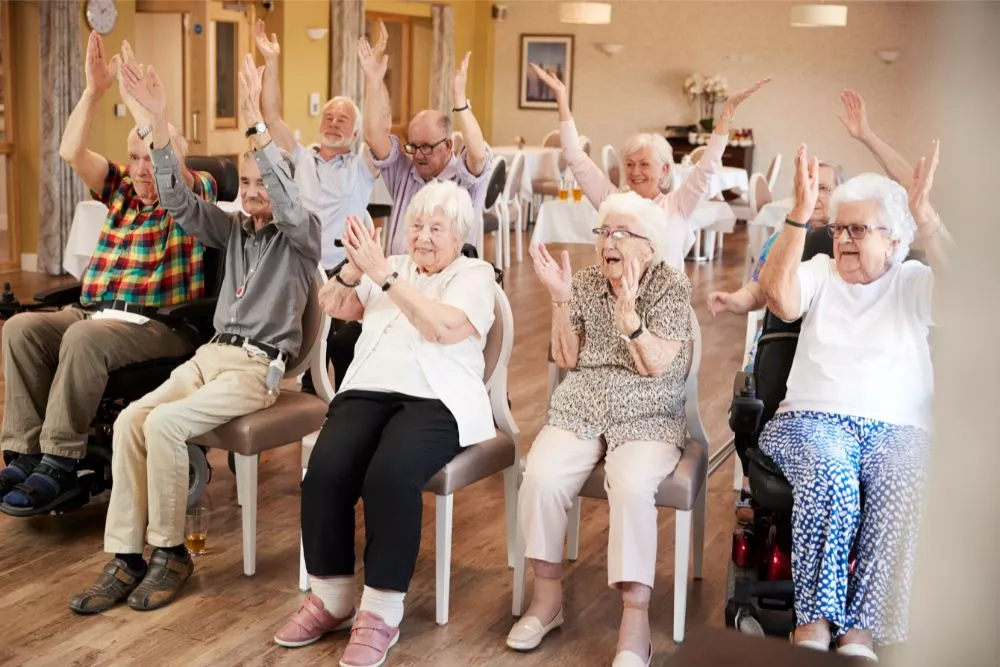Just How Aided Living Facilities Enhance Lifestyle for Those With Mental deterioration
Assisted living centers play an essential function in improving the lifestyle for people with dementia by executing customized care techniques that satisfy their distinct requirements. These environments incorporate structured tasks with psychological assistance, fostering a feeling of neighborhood while making certain safety and self-reliance. The assimilation of interesting programs and household involvement better improves the residents' experience. Yet, the intricacies of mental deterioration treatment remain to evolve, triggering a more detailed evaluation of just how these facilities adjust and innovate to satisfy the obstacles faced by residents and their households. What effects does this have for future care versions?
Personalized Care Plans
(Dementia Care Charlotte)In several instances, individuals with mental deterioration call for tailored assistance that resolves their special demands and preferences. Customized care plans are vital in assisted living setups, as they make certain that each resident receives proper attention and services. These plans are established collaboratively, entailing medical care experts, caretakers, and family participants to create an extensive review of the person's case history, cognitive capacities, and personal passions.
A well-structured personalized treatment plan commonly includes specific objectives associated with health administration, everyday activities, and social engagement. It makes up the individual's cognitive decrease while promoting self-reliance and self-respect. Routine assessments and updates to the treatment strategy are important, as they permit adjustments based upon the citizen's developing condition and choices.
Secret components of these strategies commonly include drug administration, behavioral assistance strategies, and dietary guidelines tailored to the individual's requirements (Assisted Living). By concentrating on customized care, aided living centers can foster a supportive environment that improves the quality of life for people with dementia, ultimately adding to their overall well-being and happiness. This individualized strategy values the uniqueness of each resident, guaranteeing they obtain the thoughtful treatment they call for

Involving Tasks and Programs
Engaging citizens in significant activities and programs is critical for enhancing the lifestyle for people with dementia. These activities not just supply satisfaction however also stimulate cognitive feature and promote social interaction, which can mitigate sensations of isolation usually experienced by homeowners.

In addition, tailored programs are vital in guaranteeing that each homeowner's one-of-a-kind choices and capacities are acknowledged. This customized approach urges participation, enhances self-worth, and supplies a feeling of success.
Moreover, normal assessments of residents' interests can help staff modify and adapt tasks to far better suit evolving demands. By focusing on interesting tasks and programs, assisted living centers can dramatically improve the general experience and psychological health and wellness of people dealing with dementia.
Safe and Supportive Setting
Developing a risk-free and helpful environment is important for people with dementia, as it straight affects their well-being and lifestyle. Aided living facilities are developed with specific attributes that promote safety while cultivating a complacency and convenience. These atmospheres focus on availability, with formats that decrease complication and encourage freedom, enabling residents to browse their surroundings extra conveniently.
Safety and security steps, such as secure entrances and leaves, stop wandering and unapproved access, which are important factors to consider for individuals with mental deterioration (Assisted Living). Personnel participants are trained to recognize the one-of-a-kind needs of homeowners, offering customized support and guidance to guarantee their security. The unification of relaxing shades and familiar objects can help lower stress and anxiety and disorientation, developing a more reassuring ambience.
In enhancement to physical security, psychological support is vital. Facilities usually utilize personnel that are not just knowledgeable in caregiving yet likewise learnt compassion and communication, fostering count on and connection with citizens. This all natural approach adds to a caring setting where people really feel valued and recognized, ultimately boosting their total quality of life.
Social Interaction and Neighborhood
A helpful environment not only focuses on security yet additionally cultivates possibilities for social interaction and community engagement, which are important for individuals with dementia. In nursing home, organized activities and common areas motivate locals to attach with one another, reducing feelings of seclusion often experienced by those with cognitive problems.
Social interaction plays a considerable function in enhancing emotional well-being and cognitive feature (Assisted Living). Engaging with peers in group activities such as games, arts and crafts, or workout not just boosts cognitive capacities however likewise nurtures a feeling of belonging. Facilities frequently organize occasions that advertise socializing, allowing residents to develop connections and share experiences, which can be specifically advantageous for those with dementia
In addition, a dynamic community environment can enhance the overall high quality of life for residents. Personnel members are educated to help with interactions and support locals in creating purposeful connections.
Family Involvement and Assistance
Household participation is vital in supporting individuals with mental deterioration in assisted living settings. Proactively involving member of the family not only supplies emotional comfort to locals but additionally cultivates a feeling of belonging and connection in their lives. When households take part in care preparation and daily tasks, they add valuable insights concerning the person's choices, background, and requires, which can enhance individualized treatment.
Furthermore, regular family brows through can substantially improve the emotional health of homeowners, decreasing feelings of seclusion and anxiety. Relative can also help in maintaining cognitive function by involving their liked ones in familiar discussions and tasks. This interaction reinforces individuality and aids locals feel valued and recognized.

Verdict
Finally, aided living centers considerably boost the lifestyle for people with mental deterioration via customized treatment plans, engaging tasks, and a secure environment. These aspects foster cognitive excitement, emotional wellness, and a feeling of independence. Normal social communications and strong household participation contribute to significant connections and emotional assistance. Jointly, these factors create a holistic technique to care that addresses the unique needs of people with dementia, advertising overall well-being and dignity.